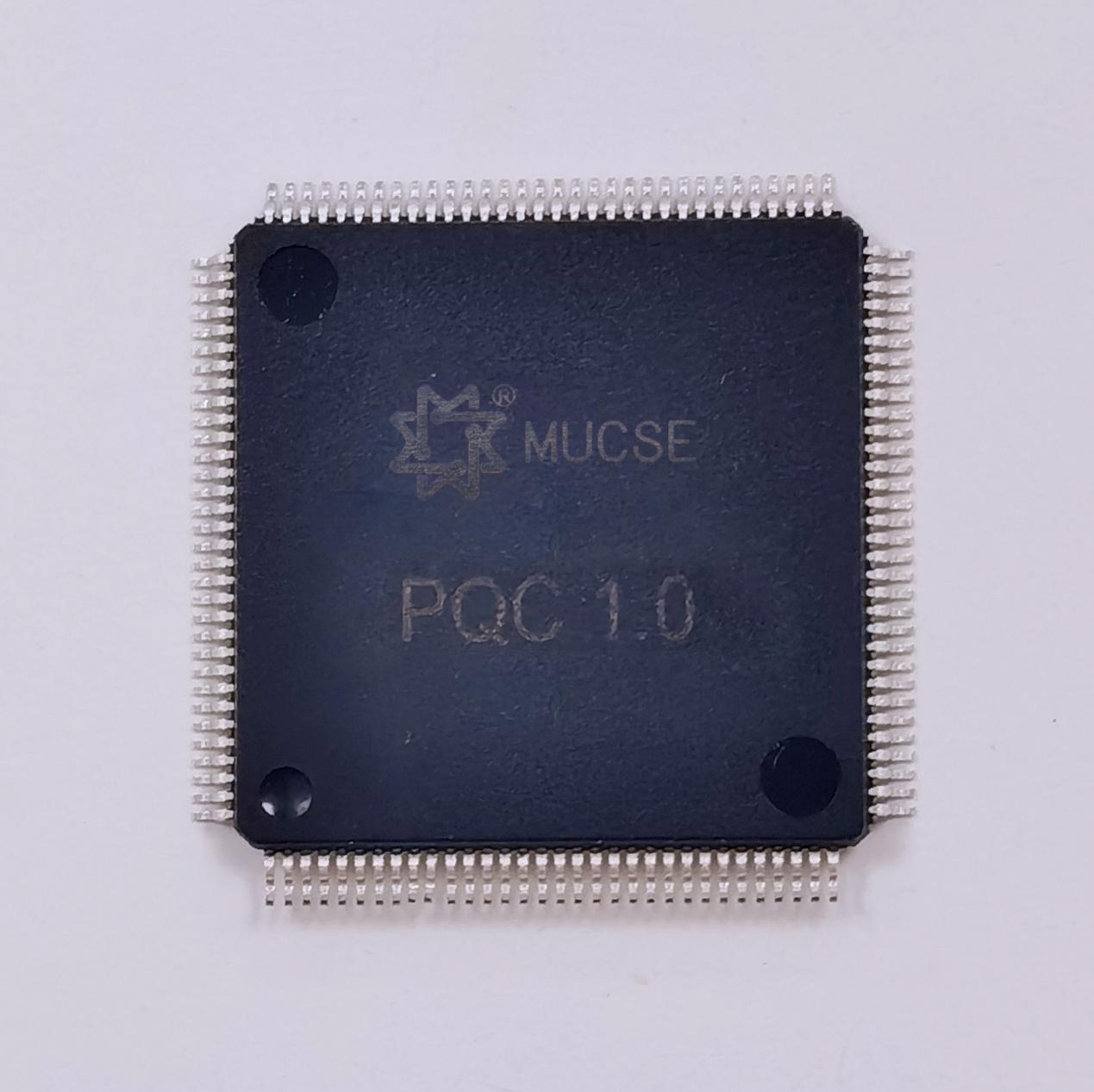 2022-08-01
2022-08-01
Beijing, July 11, 2022, MUCSE, a pioneer in security and integrated circuit, announced its latest secure chip -- PQC 1.0. The PQC 1.0 is believed to be the first commercial post-quantum security chip supporting the recent post-quantum cryptography algorithms selected by National Institute of Standards and Technology (NIST) for standardization in PQC solutions.
Releasing the PQC 1.0 security chip is the first step of MUCSE to conform the global trend of switching to quantum-resistant Public Key Infrastructures. MUCSE continuously cooperates with partners and customers to embrace this inevitable transitioning and to prepare the community against the threat of quantum computer yet-to-come.

Google said, in 2019, it has achieved the so-called “Quantum Supremacy” with its 54-qubit Platanus, an experimental quantum processor which has completed a calculation in a few minutes that would take a traditional supercomputer thousands of years.
In large-scale quantum computing, Shor’s and Grover’s quantum algorithms put devastating threat to the mathematical foundation of the current asymmetric cryptography algorithms. To confront this upcoming catastrophe of the modern security infrastructures, quantum-resistant cryptography algorithms, which are secure against both quantum and classical computers, need to be developed, implemented and deployed.
December 2016,NIST initiated a competition-like standardization process to solicit, evaluate and select quantum-resistant public-key cryptographic algorithms. After six years, on July 05, 2022, NIST announced the first group of four quantum-resistant cryptographic algorithms to be standardized. After six days, on July 11, 2022, MUCSE announced its first commercial post-quantum cryptography security chip, supporting two winners: CRYSTALS-KYBER for public-key encryption and key-establishment,and CRYSTALS-Dilithium for digital signature.
The PQC 1.0 is fabricated to 28nm technology, with a footprint less than 3 mm² and a power consumption of 150 mW. Compared with mainstream CPUs such as Apple M1 and ARM cortex-a72, the performance of PQC 1.0 could achieve an acceleration of, at maximum, 20 times. The energy efficiency is improved by two orders of magnitude. Together with PQC 1.0, MUCSE released the PQC development kit, providing complete quantum-resistant solutions to their partners and customers.
The successful release of the PQC 1.0 security chip is a milestone for both MUCSE and the industry to counter the threat posed by quantum computer attacks. It also affirms years of dedicated works from the R&D of MUCSE. For the industry, the PQC 1.0 can be used to evaluate the replaceability of post-quantum algorithms in existing industry platforms, and to facilitate the construction of the next-gen public-key systems in real-world applications.
MUCSE has always positioned itself as a pioneer in the forefront of the security field; and a connector bridging the gap between the academic results and industrial solutions. In the past, MUCSE has successfully introduced its two generations of high-performance cryptographic chips to the domestic market of China.
About MUCSE
MUCSE (Micro Innovation Integrated Circuit) is the rising leader in IC Design and the global provider of cybersecurity solutions for both high performance servers and embedded systems. Founded in Dec 2018, MUCSE is a Spin-off of Institute of Microelectronics, Tsinghua University. A character of innovation, perpetual passion, experienced R&D team, have allowed MUCSE to establish itself as a pioneer and a leader in the field of security solutions. Its two main product lines are security chips and intelligent network controller chips.
Company:WUXI MICRO INNOVATION INTEGRATED CIRCUIT DESIGN CO.,LTD,
Contact Person: Pu Jiaohua
mikeEmail:pujiaohua@mucse.com
Website:www.mucse.com
Telephone: +86 15905177613
Location:Wuxi,Jiangsu,China